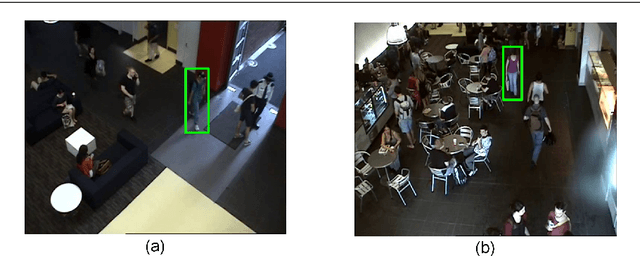Person Retrieval in Surveillance Using Textual Query: A Review
Paper and Code
May 06, 2021



Recent advancement of research in biometrics, computer vision, and natural language processing has discovered opportunities for person retrieval from surveillance videos using textual query. The prime objective of a surveillance system is to locate a person using a description, e.g., a short woman with a pink t-shirt and white skirt carrying a black purse. She has brown hair. Such a description contains attributes like gender, height, type of clothing, colour of clothing, hair colour, and accessories. Such attributes are formally known as soft biometrics. They help bridge the semantic gap between a human description and a machine as a textual query contains the person's soft biometric attributes. It is also not feasible to manually search through huge volumes of surveillance footage to retrieve a specific person. Hence, automatic person retrieval using vision and language-based algorithms is becoming popular. In comparison to other state-of-the-art reviews, the contribution of the paper is as follows: 1. Recommends most discriminative soft biometrics for specifiic challenging conditions. 2. Integrates benchmark datasets and retrieval methods for objective performance evaluation. 3. A complete snapshot of techniques based on features, classifiers, number of soft biometric attributes, type of the deep neural networks, and performance measures. 4. The comprehensive coverage of person retrieval from handcrafted features based methods to end-to-end approaches based on natural language description.
 Add to Chrome
Add to Chrome Add to Firefox
Add to Firefox Add to Edge
Add to Edge